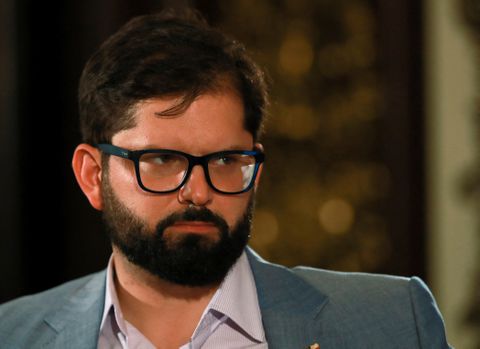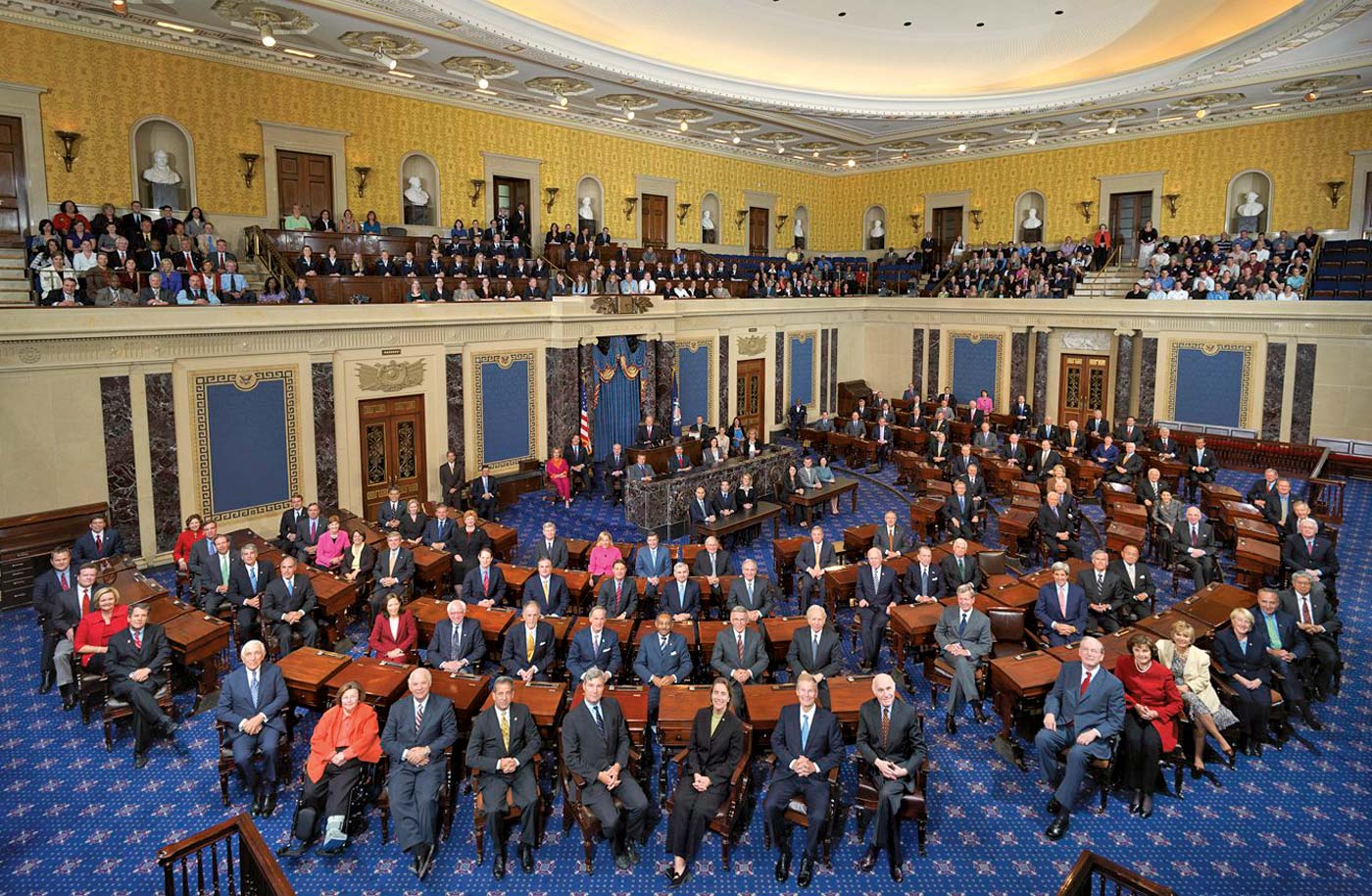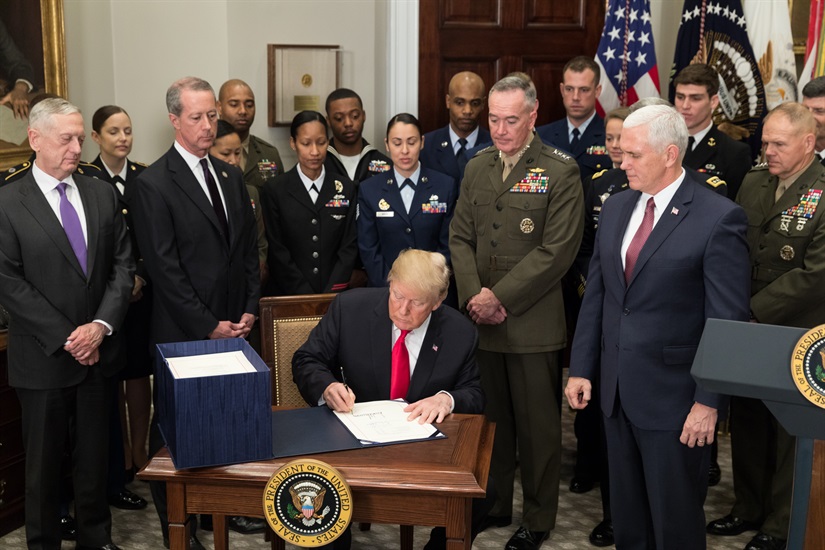AFRICA
Hispanics and Their Transformative Role in Leading the Country Forward
Throughout the last few decades, America has undergone a dramatic and transformative demographic shift, with Hispanics contributing greatly to this change. Today, Hispanics now consist of 17 percent of the population, nearly doubling since the year 1990 when they composed of just 9 percent of U.S. citizens. No other demographic group in the United States has seen this type of growth, thus begging the question, “how will the identity of the United States change with the inevitable and continued increase of the Hispanic population?”
Thru most of its history, the United States has largely been influenced by Caucasians in many different respects, ranging from culture to politics and even the economy. Though other groups have helped mold and shape the many facets of the American socio-economic sphere, it is unequivocal to state that whites have largely dominated in this regard.
While the population is still mostly white and will remain that way for at least the next couple of decades, many people are still trying to grasp and understand what the increase in the population of Hispanics and other minorities will mean for the United States. Look no further than my crystal ball to find the answers. Okay, I don’t actually have a crystal ball, but bear with me here. My budget doesn’t allow me to purchase a shiny, new crystal ball so instead I am going to transcribe everything onto this column.
One of the most obvious implications, due to the sustained increase of the Latino population in America, is the soon to be changed dynamic of the national economy. For example, data from the Nielsen corporation reveals that the growth of Hispanic buying power from the year 2010 to the year 2015 to be roughly at 50 percent. To put this into numerical terms, Hispanic purchasing power has increased from $1 trillion to $1.5 trillion in less than 5 years. Even with my limited knowledge about how the economy operates, I am supremely confident in saying that Hispanics have now become a major economic driving force based on the fact that the United States economy is approximately 70 percent consumer based.
Given that the spotlight is now firmly placed on the Hispanic consumer, many large corporations across the United States are beginning to pay close attention. They understand that there is a vast amount of untapped potential in the pockets of Hispanics. Yes, that sounded incredibly exploitative, but that’s capitalism for you. Either way, companies must now come to the realization that they no longer just catering to the Caucasian demographic as their primary consumers, rather, they must now concoct an alternative plan to successfully attract the Hispanic buyer. What works for one group may not work for the other.
Looking at demographic statistics and analyses, it is said that “60 percent of the U.S. Hispanic population is under the of age 35, and 75 percent is under the age of 45.” The most active consumers and contributors to the economy, not surprisingly, lie right in the middle of this range. As a result, IBISWorld, a leading research company that analyzes industry trends, says that there are seven sectors of the economy that companies should be focusing on if they want to attract the Latino population. They say we should look at residential buying, food (grocery and restaurants), retail (clothing and electronics), education (higher education and technical schools), financial services, transportation (automotive and airline), and entertainment and media industries.
Entrepreneurs and CEOs looking to understand the spending habits and proclivities of the Hispanic consumer should look no further than Texas, Florida, California, Colorado, and New Mexico, where the highest concentrations of Hispanics exist. For a company looking to reach its full market potential, these states provide a fertile ground for potential buyers. It would definitely be much wiser for a company to invest in these states rather than West Virginia, for example, where the growth potential for Hispanics is far lower.
Looking at the typical consumption patterns of Hispanics in America, it is stated that “Hispanics tend to shop less often, but spend more per trip, and are less likely to buy products at promotional prices.” While this statement may seem relatively innocuous, it presents a challenge to business owners. It forces them to create a stronger connection between the consumer and the place of retail because fewer trips mean less money being spent which then equates to less revenue being generated. The idea is to develop a stronger connection to the Hispanic consumer to draw them back into the store, thus creating more opportunities where the buyer would spend more money.
So, it is clear that companies need to do a better job of developing and fostering connections to their consumers if they seek increased business. How can they do such a thing? Well, when in doubt use advertising. While many of us detest advertising for ruining T.V. and the internet in an unholy fashion, it is still wholly effective in bringing potential consumers to the market. Why else would companies spend billions of dollars on it?
It is said that major companies are spending around $5.7 billion dollars on Spanish advertisement in hopes of reaching out to the Hispanic consumer base. While the impact of advertisement on the Hispanic population is just as significant as it would be for any group, there are certain stipulations. Hispanics, for example, enjoy ads 51 percent more when the language is in Spanish rather than English. In addition, when the ad is performed in Spanish, the person who watched the ad is 30 percent more likely to recall the product that was being advertised. Companies must be cognizant of the subtle cultural differences and tendencies of Hispanics if they want to succeed.
In terms of actual products, let’s take a look at the compounded annual growth rate percentages of beverages in the United States by demographic. The chart below shows that when it comes to tea, spirits/wines, coffee, non-carbonated drinks, juice, and carbonated drinks, Hispanics are drivers of growth. Why are beverages so important? Well, they aren’t that important, but singling out specific industries allows us to evaluate the impact that Hispanics can have on the economy as a collective. We see that Hispanics can be both the catalyst and the brake to the potential growth of a product or industry.
While Hispanics may have been viewed as insignificant in the past, this is certainly not the case today. Today, Hispanics are both influential in politics and the economy, driving the decision-making processes far more than anyone could have anticipated even just two decades ago. For companies looking to grow, this is particularly beneficial because it provides a great opportunity for new found market growth. Considering Hispanics are only going to continue to grow in numbers in the foreseeable future, both in population and economic terms, it would be insane to ignore the potential economic gains from tapping into this growing demographic. Hispanics will be the future driver of growth in the United States and it is now time we, as Americans, realize this and understand just how important it is to live in this period of history.
Featured Image via housingwire
AFRICA
The UK paid Rwanda an additional $126 million for the contested migrant plan.
As the tab for Britain’s controversial proposal to relocate asylum seekers to the East African nation continues to increase, the United Kingdom paid Rwanda an extra 100 million pounds ($126 million) in April. This was in addition to the 140 million pounds it had already provided Rwanda.
Even though the Rwanda project is at the core of the policy that British Prime Minister Rishi Sunak is employing to discourage illegal immigration, there have been no individuals sent to Rwanda as of yet due to legal challenges that have taken place since the initiative was introduced in 2022.
After Sunak’s immigration minister resigned this week, the polarizing policy is now regarded as a danger to Sunak’s leadership, which is anticipated to be challenged in the election that will take place the following year.
According to a letter that the British Ministry of the Interior issued on Thursday, the United Kingdom plans to give Rwanda fifty million pounds in addition to the 240 million pounds it has already provided to the East African nation.
The opposition Labour Party criticized the disclosures regarding the rising cost of a scheme that legal experts warned could collapse. Some parliamentarians within Sunak’s party are also expected to express their disapproval of the idea.
A statement by Yvette Cooper, the shadow interior minister for the Labour Party, on social networking site X, said, “Britain cannot afford more of this costly Tory chaos and farce.”
On Friday, however, the newly appointed minister for legal migration, Tom Pursglove, explained what he called the “investment” of 240 million pounds. He stated that once the Rwanda policy was operational, it would reduce the money spent on hosting asylum-seekers in the United Kingdom.
“When you consider that we are unacceptably spending 8 million pounds a day in the asylum system at the moment, it is a key part of our strategy to bring those costs down,” Pursglove explained to Sky News.
Pursglove stated that the money donated to Rwanda would assist in the country’s economic growth and help get the asylum relationship with the United Kingdom up and running.
There was no connection between the money sent to Rwanda and the treaty that the two nations signed on Tuesday, according to the letter from the Ministry of the Interior.
The treaty aims to respond to a ruling by the Supreme Court of the United Kingdom, which stated that the deportation plan would contravene local laws based on international human rights standards.
“The Government of Rwanda did not ask for any payment in order for a Treaty to be signed, nor was any offered,” according to the correspondence.
After Robert Jenrick resigned from his position as immigration minister on Wednesday, Sunak made a plea to fellow Conservative parliamentarians on Thursday to come together in support of his Rwanda proposal. He stated that the emergency legislation the government had drafted to get the scheme up and running did not go far enough.
Africa
UK interior minister travels to Rwanda to resurrect asylum plan.
On Tuesday, the Minister of the Interior of the United Kingdom, James Cleverly, came to Rwanda to sign a new treaty. This was done to circumvent a court judgment that blocked the government’s contentious policy of transferring asylum seekers to the East African nation.
The Rwandan plan is at the core of the government’s attempt to reduce migration, and it is being closely monitored by other nations who are considered to be considering policies that are comparable to Rwanda’s.
In a decision handed down a month ago, the Supreme Court of the United Kingdom stated that such a move would violate international human rights norms embedded in domestic legislation.
Following the decision, the United Kingdom has been making efforts to revise its agreement with Rwanda to incorporate a legally binding treaty that guarantees Rwanda would not remove asylum seekers brought there by the United Kingdom. This is one of the primary concerns of the court.
Several attorneys and charitable organizations have said that it is highly improbable that deportation flights will begin before the election. With a lead of more than ten percentage points in the polls, the opposition Labour Party intends to abandon the Rwanda policy if it is victorious.
A meeting between Cleverly, who arrived in Kigali, the capital of Rwanda, on Tuesday morning, and Vincent Biruta, the country’s Minister of Foreign Affairs, is scheduled to take place to sign the agreement.
“Rwanda cares deeply about the rights of refugees, and I look forward to meeting with counterparts to sign this agreement and further discuss how we work together to tackle the global challenge of illegal migration,” Cleverly says.
The United Kingdom aims to transfer thousands of asylum seekers who came to its beaches without authorization to Rwanda under the plan that was agreed upon the previous year. This discourages migrants from crossing the Channel from Europe in tiny boats.
In exchange, Rwanda has been given an initial payment of 140 million pounds, equivalent to 180 million dollars, along with the promise of additional funds to cover the costs of housing and medical treatment for any deported persons.
THE PRESSURE
A great deal of pressure is being put on Prime Minister Rishi Sunak to reduce net migration, which reached a record high of 745 thousand people in the previous year, with the vast majority of migrants entering through legal channels.
“Stop the boats” is one of the five goals that Sunak has set for his government. The influx of asylum seekers who pay people smugglers for their crossings of the Channel, which frequently take place in boats that are overloaded and not seaworthy, is one of the aims that Sunak has set.
The Supreme Court determined that the Rwanda plan should not be implemented because there was a possibility that refugees who were deported would have their claims incorrectly evaluated or that they would be sent back to their country of origin to suffer persecution.
In the latter part of this week, it is anticipated that the new treaty will be followed by the release of legislation declaring Rwanda a so-called safe nation. This law is intended to prevent legal challenges against the planned deportation flights.
Despite this, this will probably result in a fresh set of political and legal difficulties.
An immigration attorney at Harbottle & Lewis named Sarah Gogan stated that the government’s policy will be challenged due to Rwanda’s history of violations of human rights provisions.
“Rwanda is an unsafe country and this is not a quick fix,” added the politician. “You cannot in a matter of weeks or months reform a country and turn it into one with an impartial judiciary and administrative culture.”
Another “gimmick” was what Yvette Cooper, the spokesperson for the Labour Party’s home affairs department, called the most recent measures proposed by the administration.
Whether or not to design the law in a way that would avoid subsequent legal challenges is still up for debate by the administration.
Several members of the Conservative Party in parliament are putting pressure on the government to incorporate a “notwithstanding” clause into Rwanda’s policy. This clause would disapprove the domestic and international human rights commitments of the United Kingdom regarding Rwanda.
However, some politicians within the ruling party, such as Robert Buckland, have stated that such a move would be “foolish” and undermine the Good Friday Agreement, which is primarily responsible for ending three decades of carnage in Northern Ireland. This is because the European Convention on Human Rights supports the treaty.
AFRICA
Madagascar leader wins presidential vote, constitutional court says
On Friday, the High Constitutional Court of Madagascar certified Andry Rajoelina, the current President of Madagascar, to be the victor of the election a month ago, essentially granting him a third term in office.
Following the dismissal of several challenges submitted against the preliminary results by the electoral board, the court said that Rajoelina collected 58.96% of the votes that were cast.
Florent Rakotoarisoa, the chairman of the High constitutional court, stated that “Andry Rajoelina is elected as the president of the republic of Madagascar and is taking his functions as soon as the swearing (is conducted) comes to an end.”
The rejected challenge was submitted by the politician Siteny Randrianasoloniaiko, who received 14.39% of the vote, according to the court. This was one of the challenges that was denied.
Ten of the thirteen candidates chose not to participate in the election; nevertheless, their names were already on the ballot, so they could still divide the remaining votes. The court reported that the turnout was 46.35 percent.
The election on November 16 was preceded by weeks of demonstrations, during which the opposition accused Rajoelina of having fostered conditions that were unjust to the election.
The charges that the vote was rigged have been refuted by Rajoelina, and the army has issued a warning against any attempts to destabilize the country.
As far as the opposition is concerned, the voter turnout for the election was the lowest it has ever been in the country’s history.
Hajo Andrianainarivelo, a former minister who was one of the candidates who chose to abstain from voting, has committed to fight against what he has described as a lack of respect for the rules of the state and the tyranny of the people.
“The popular fight begins now,” he declared on Thursday referring to the ongoing conflict.
Rajoelina, now 49 years old, initially won power in a coup in 2009. After resigning from his position as the head of a transitional authority in 2014, he went on to win another election in 2018 and regain his position as president.
-

 Europe7 months ago
Europe7 months agoRussia’s Shoigu accuses the West of seeking to expand the Ukraine war to the Asia-Pacific.
-

 Geopolitics & Foreign Policy6 months ago
Geopolitics & Foreign Policy6 months agoTurkey’s Erdogan says he may visit Egypt soon, discuss Gaza patients -media.
-

 America8 months ago
America8 months agoRepublican US House to hold first Biden impeachment inquiry hearing
-

 Geopolitics & Foreign Policy6 months ago
Geopolitics & Foreign Policy6 months agoRussia deploys new nuclear missile in Kaluga region – RIA
-

 Geopolitics & Foreign Policy6 months ago
Geopolitics & Foreign Policy6 months agoCeasefire takes hold in Gaza ahead of hostage release; aid enters enclave.
-

 Gender, Sexuality & Identity7 months ago
Gender, Sexuality & Identity7 months agoGreenland women ask Denmark for compensation over involuntary birth control.
-

 Global Issues & Cooperation8 months ago
Global Issues & Cooperation8 months agoHuman rights in Russia have ‘significantly deteriorated’ – UN expert.
-

 TECH6 months ago
TECH6 months agoAustralia to amend laws to regulate digital payments like Apple and Google Pay.














